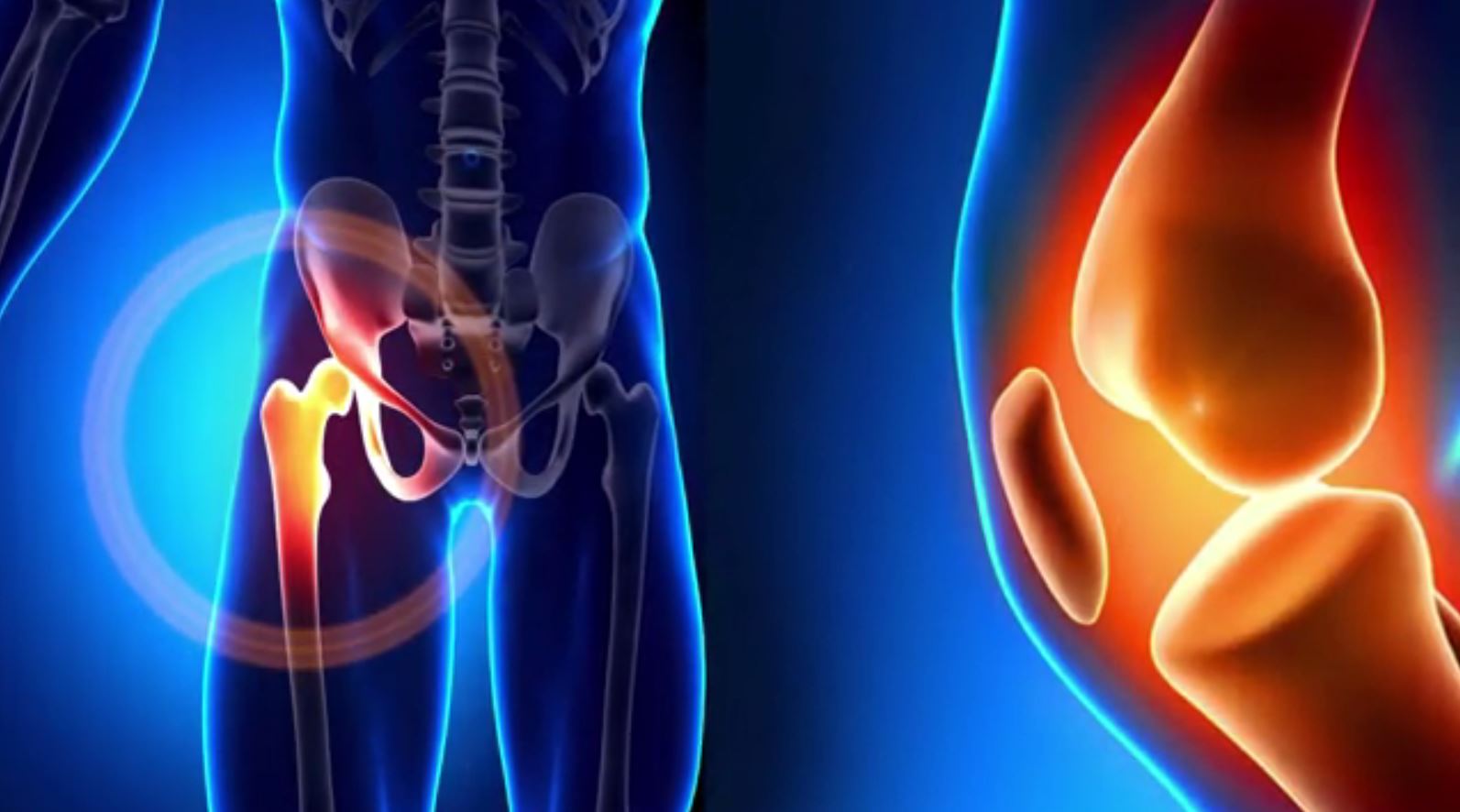There’s good news from UMass Medical School for overweight people with painfully arthritic hips and knees: A new study finds that obese patients who underwent knee or hip replacement surgery reported virtually the same pain relief and improved function as normal-weight joint replacement patients six months after surgery.
“Our data shows it’s not necessary to ask patients to lose weight prior to surgery,” says Wenjun Li, PhD, associate professor of medicine and lead author on the study. “It’s challenging for a patient who is severely overweight and suffering in pain to exercise — often they just can’t do it. Our evidence showed that severe morbidly obese patients can benefit almost equally as normal weight patients in pain relief and gains in physical function.”
The aim of the study, published in the Journal of Bone and Joint Surgery, was to evaluate the extent of pain relief and functional improvement in total joint replacement patients with various levels of obesity. The researchers concluded that while obesity is associated with a greater risk of early complications, obesity in itself should not be a deterrent to undergoing total joint replacement to relieve symptoms.
Prior research has documented that obesity is associated with a small, but increased likelihood of infection after total knee replacement, which may discourage obese patients from having surgery. “However, in this paper we report that obese patients have comparable pain relief and functional outcomes after surgery,” says Patricia Franklin, MD, MBA, MPH, professor of orthopedics & physical rehabilitation. “Patients should know that these benefits may outweigh risks.”

(Image credit: screengrab from UMass Medical School video, by Bryan Goodchild)
Franklin is principal investigator of the Function and Outcomes Research for Comparative Effectiveness in Total Joint Replacement (FORCE-TJR) program from the federal Agency for Healthcare Research and Quality. She co-authored the paper with David Ayers, MD, the Arthur M. Pappas, MD, Chair in Orthopedics and chair and professor of orthopedics & physical rehabilitation; Jeroan J. Allison, MD, MS,, vice chair and professor of quantitative health sciences; and colleagues at Hartford Hospital and Geisinger Health Center.
Preoperative and 6-month postoperative data on function, joint pain and body mass index (BMI) from a national sample of 2,040 patients who had undergone total hip replacement and 2,964 who had undergone total knee replacement from May 2011 to March 2013 was collected. Preoperative and postoperative function and pain were evaluated according to BMI status, defined as under or of normal weight, overweight, obese, severely obese, or morbidly obese. A greater obesity level was associated with worse pain at baseline but greater postoperative pain relief, with average postoperative pain scores at six months similar across the BMI levels.
“This surprised us a little bit. Past analysis showed that obesity is associated with outcomes to some degree, but here we see the magnitude is so small it won’t make much difference, and severely obese patients can benefit a lot from the surgery,” said Dr. Li. “Patients who can lose weight should, but we acknowledge many people can’t, or it will take a long time during which their joints will worsen. If they can get the surgery earlier, once function is restored they can better address obesity.”
“Losing weight by making appropriate dietary changes and increasing the calories burned each day through water exercise programs and other aerobic, non-weight bearing activities is always appropriate to decrease the risk of complications for overweight patients,” said FORCE-TJR co-investigator Dr. Ayers. “This manuscript adds to our collective knowledge regarding the risk benefit ratio of total joint replacement surgery in obese patients. The debate will continue in the morbidly obese patients with BMI over 40, and the super obese with a BMI over 50, regarding what steps can and should be taken to lower the risks before these elective surgical procedures.”
Funded by a $12 million grant, the FORCE-TJR research program has developed a national database of surgical results and patient-reported outcomes from more than 30,000 patients. FORCE-TJR is unique in quantifying patient reported pain and function after surgery in order to assess multiple factors associated with the best results.
“Other registries primarily evaluate implant longevity,” said Franklin. “Thus FORCE-TJR has taken the lead in evaluating patient factors and outcomes.”




